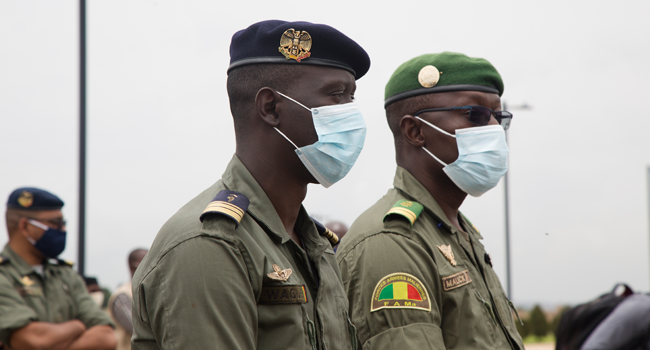
A forum in Mali debating how to restore civilian rule on Friday discussed a proposal to appoint a two-year transitional government, heavily influenced by the military junta.
The proposal, made by junta-appointed experts, has been submitted to about 500 participants from political parties, unions and NGOs at a three-day conference in the capital Bamako.
The talks mark the second round of discussions between the young officers who overthrew President Ibrahim Boubacar Keita on August 18 and civilian representatives, many of whom had campaigned for him to resign.
The junta, just hours after the coup, pledged to restore civilian government and stage elections within a “reasonable time”.
But many participants at the forum are divided over issues such as how long a transition government should last, and what role the army should play.
Under the proposals to be discussed on Friday, which were seen by AFP, the military would retain a strong hold on government.
A two-year transitional government would be led by a president picked by the army, for example, although the text stipulates that the office could be filled by either a “civil or military personality”.
The president would also nominate the prime minister, according to the text, and an army officer would lead a proposed 51-member legislative body, dubbed the “national transition council”.
Whoever is appointed president would be unable to run for president at the end of the two-year transition, however. The prime minister would likewise be forbidden from running for office.
The proposal sparked lively and sometimes-tense debates among the forum participants on Friday.
But the next steps remain unclear. The junta has not clarified whether it will release a final version of the text, nor if its recommendations would be followed.
Several officials, who declined to be named, nonetheless said that the ruling army officers will decide a course of action based on a summary of the forum’s separate debates.
Any document will only be published after the end of the forum on Saturday, at an unspecified date, the officials added.
The junta had initially talked of a three-year transition, corresponding to the time left in Keita’s second five-year mandate, that would be overseen by a soldier.

– Military rule –
The 15-nation regional bloc ECOWAS has taken a hard line, insisting that Mali’s ruling army officers hand over power within 12 months. It has also closed borders and banned trade with the nation of some 19 million people.
Given the pressure from the international community, it is unclear how delegates at the Bamako forum will receive the proposals for the two-year transition government.
There are also deep divisions within the so-called June 5 Movement (M5), which engineered the wave of anti-Keita protests in the run-up to the coup.
Under the proposals, members of the movement would sit on the national transition council.
Some voices within the M5 argue in favour of giving the military a long handover in order to tackle the problems that have driven the country to the brink.
Others say that this would simply worsen instability — four more Malian troops were killed in an attack on the eve of the talks — and set a poor example for democracy in West Africa.
Mahmoud Dicko, an influential imam who is viewed as the figurehead of the June 5 Movement, pushed for civilian government in an interview on national television on Wednesday.
“We have nothing to gain by turning the international community against us,” he said.
AFP

